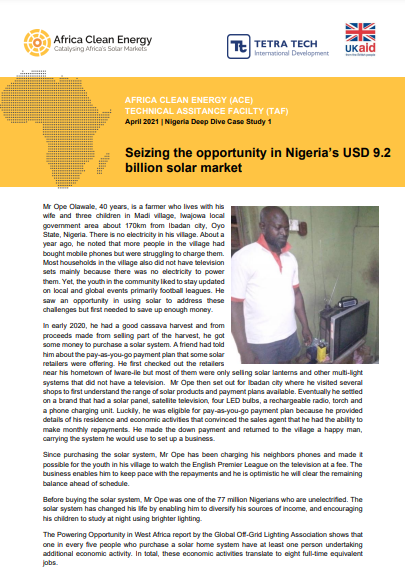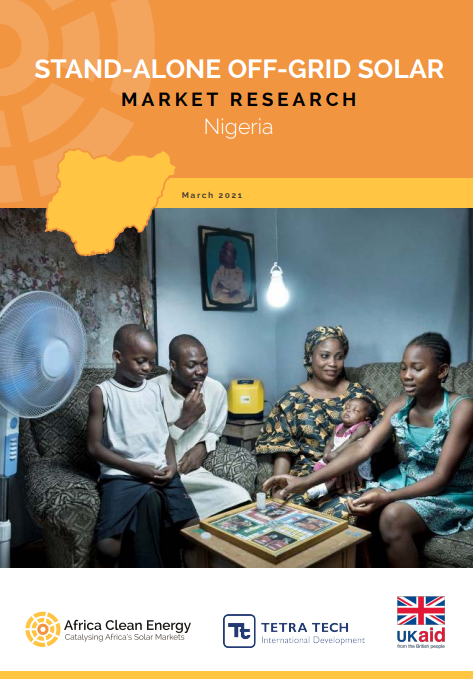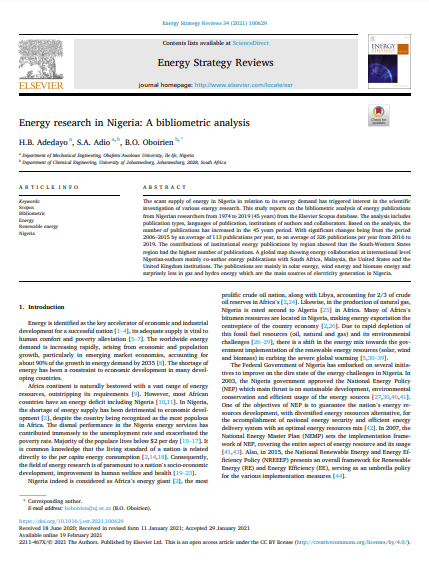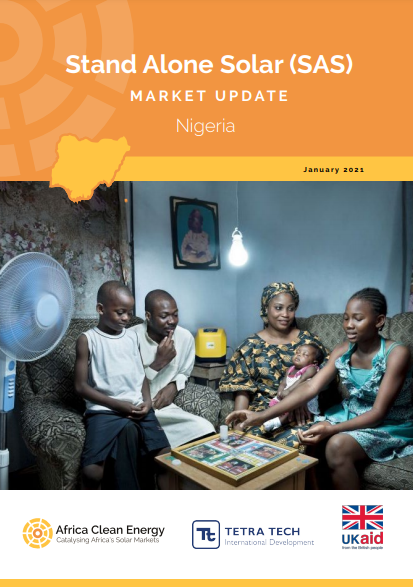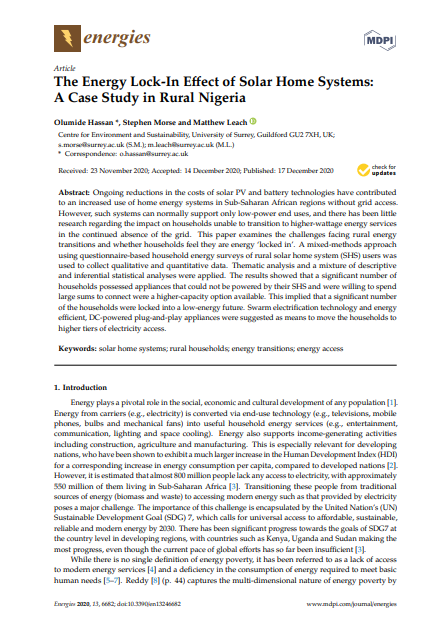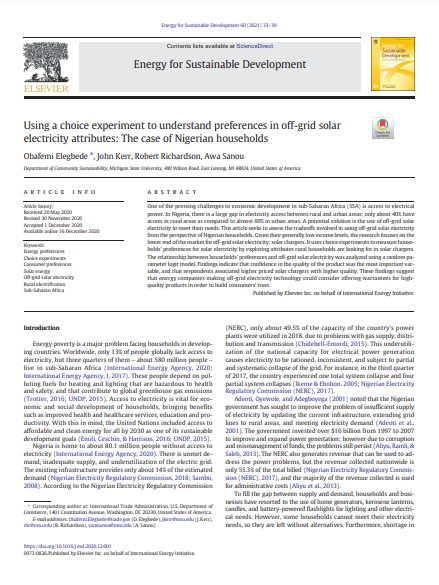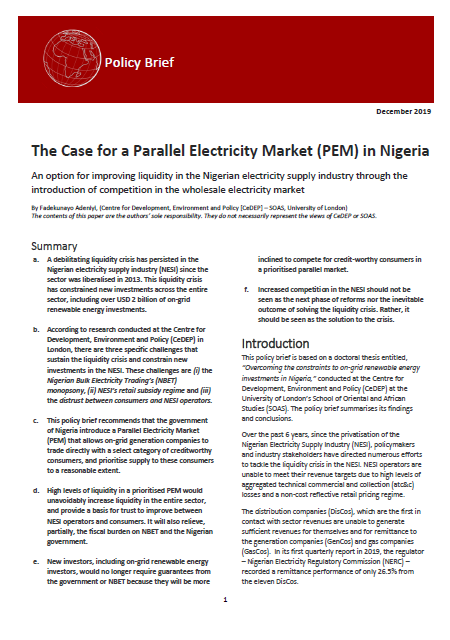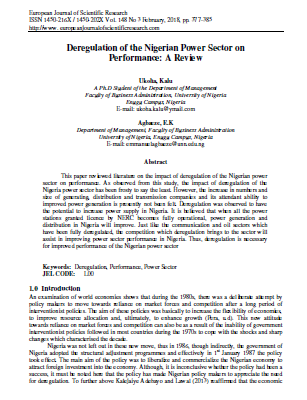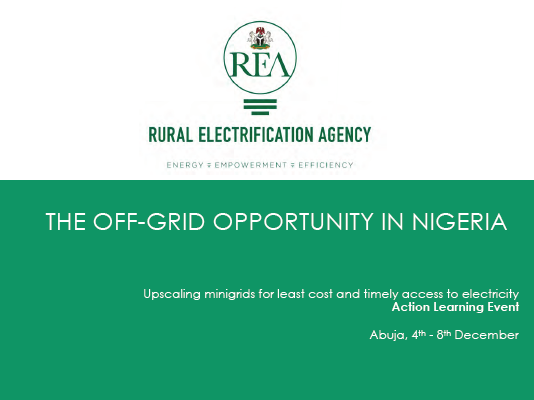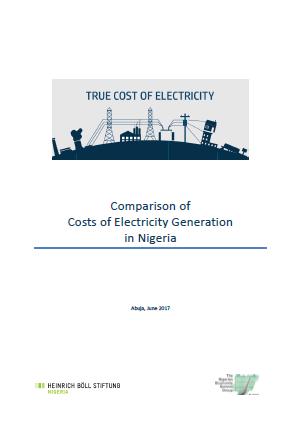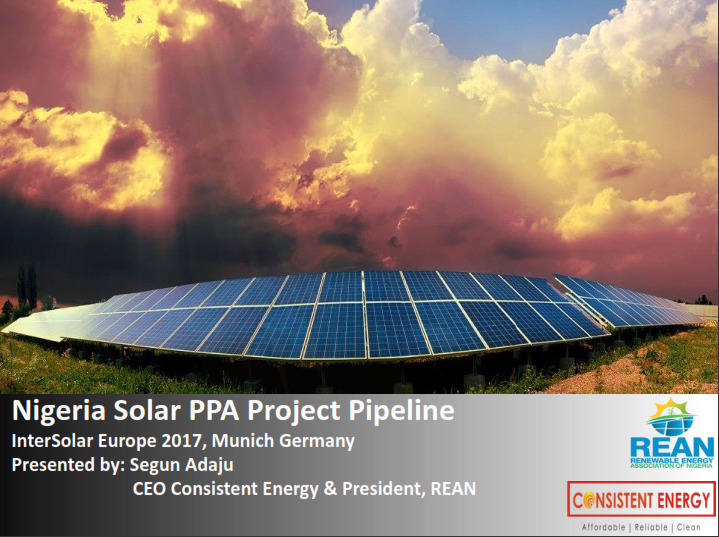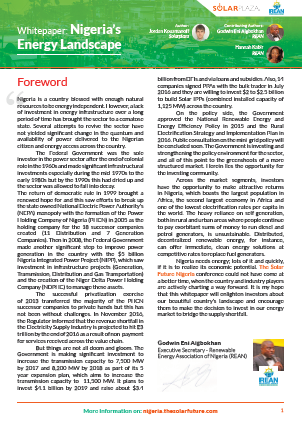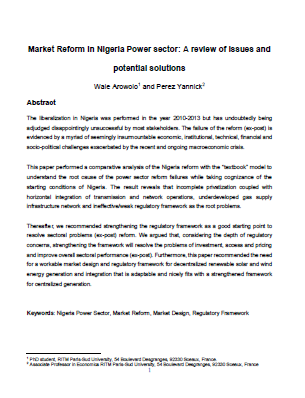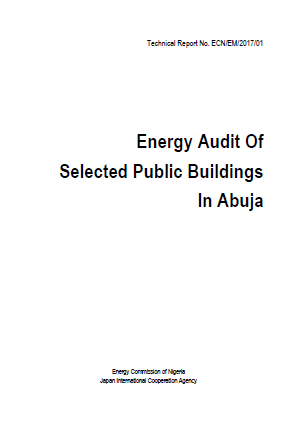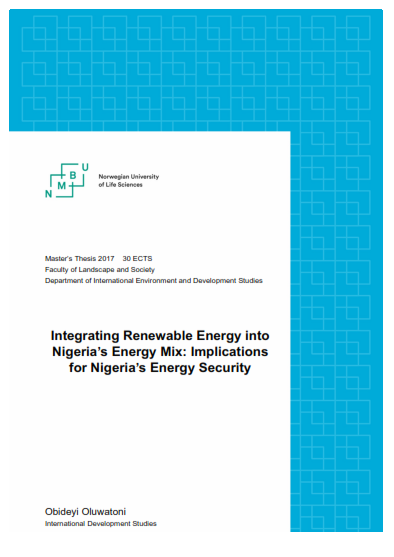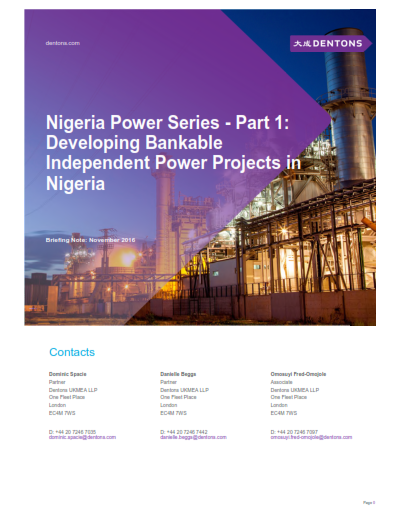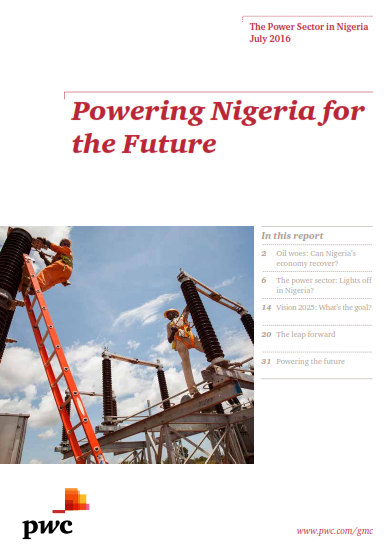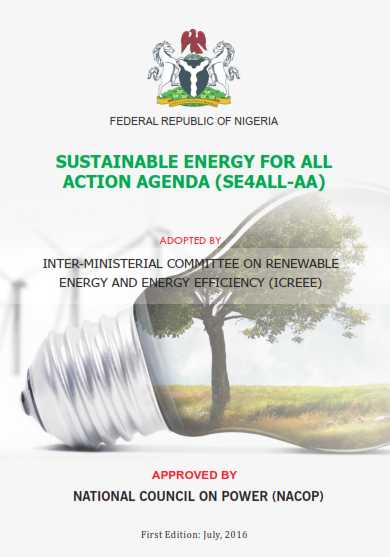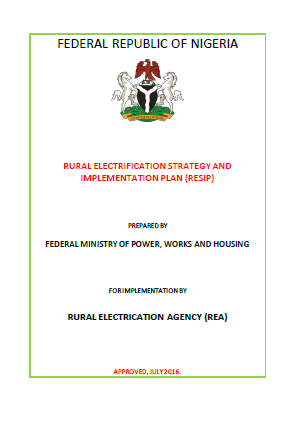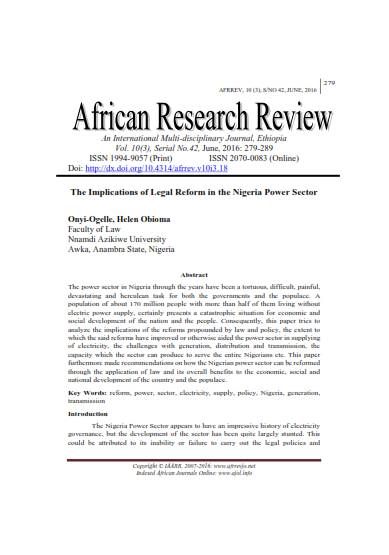We post here the relevant reports for the power sector in Nigeria. Feel free to join our efforts and share us any other you may have found. We'd be glad to add them to the list. Just send an email to This email address is being protected from spambots. You need JavaScript enabled to view it.
Publication date: April 2021
Author: Tetra Tech International Development
Description: Mr Ope Olawale, 40 years, is a farmer who lives with his wife and three children in Madi village, Iwajowa local government area about 170km from Ibadan city, Oyo State, Nigeria. There is no electricity in his village. About a year ago, he noted that more people in the village had bought mobile phones but were struggling to charge them. Most households in the village also did not have television sets mainly because there was no electricity to power them. Yet, the youth in the community liked to stay updated on local and global events primarily football leagues. He saw an opportunity in using solar to address these challenges but first needed to save up enough money.
Download Report >>
Visit Website >>
Publication date: March 2021
Author: Tetra Tech International Development
Description: Nigeria’s population is estimated at 201 million,3 of which 77 million are unelectrified. Those connected do not necessarily fare better, as 80 per cent supplement unreliable electricity with a host of alternatives, largely diesel or petrol generators. The International Energy Agency (IEA) estimates that in the next 10 years (until 2030), the national grid will not reach national coverage and hence a large part of the Nigerian population will still depend on off-grid solutions for electrification.
Download Report >>
Visit Website >>
Publication date: 19 February 2021
Author: Elsevier
Description: The scant supply of energy in Nigeria in relation to its energy demand has triggered interest in the scientific investigation of various energy research. This study reports on the bibliometric analysis of energy publications from Nigerian researchers from 1974 to 2019 (45 years) from the Elsevier Scopus database.
Download Report >>
Visit Website >>
Publication date: January 2021
Author: ACE-TAF
Description: Nigeria has witnessed major political and economic changes in the last year. Volatility in the oil markets, an unstable foreign exchange rate, and rising inflation have led to dwindling national revenues and increased costs of living across the country. These problems have been exacerbated by the COVID-19 pandemic that has crippled the world’s economy and impacted Nigeria’s revenue, leading to the recent admission by the Nigerian government that the country is officially in a recession.
Since the conclusion of the 2019 general elections, and more particularly between June 2019 and December 2020, the Nigerian power sector has seen changes that include the unbundling of the Federal Ministry of Power from the Federal Ministry of Works and Housing, as well as major leadership changes in the Federal Ministry of Power, the Rural Electrification Agency (REA) and the National Electricity Regulatory Commission (NERC).
Download Report >>
Visit Website >>
Publication date: 17 December 2020
Author: MDPI
Description: Ongoing reductions in the costs of solar PV and battery technologies have contributed to an increased use of home energy systems in Sub-Saharan African regions without grid access. However, such systems can normally support only low-power end uses, and there has been little research regarding the impact on households unable to transition to higher-wattage energy services in the continued absence of the grid. This paper examines the challenges facing rural energy transitions and whether households feel they are energy ‘locked in’. A mixed-methods approach using questionnaire-based household energy surveys of rural solar home system (SHS) users was used to collect qualitative and quantitative data. Thematic analysis and a mixture of descriptive and inferential statistical analyses were applied. The results showed that a significant number of households possessed appliances that could not be powered by their SHS and were willing to spend large sums to connect were a higher-capacity option available. This implied that a significant number of the households were locked into a low-energy future. Swarm electrification technology and energy efficient, DC-powered plug-and-play appliances were suggested as means to move the households to higher tiers of electricity access.
Download Report >>
Visit Website >>
Publication date: 16 December 2020
Author: Elsevier
Description: One of the pressing challenges to economic development in sub-Saharan Africa (SSA) is access to electrical power. In Nigeria, there is a large gap in electricity access between rural and urban areas; only about 40% have access in rural areas as compared to almost 60% in urban areas. A potential solution is the use of off-grid solar electricity to meet their needs. This article seeks to assess the tradeoffs involved in using off-grid solar electricity from the perspective of Nigerian households.
Download Report >>
Visit Website >>
Publication date: 2019, December
Author: CEDP - SOAS
Description: An option for improving liquidity in the Nigerian electricity supply industry through the introduction of competition in the wholesale electricity market.
Download Report >>
Publication date: 2018, February
Author: University of Nigeria
Description: This paper reviewed literature on the impact of deregulation of the Nigerian power sector on performance. As observed from this study, the impact of deregulation of the Nigeria power sector has been frosty to say the least. However, the increase in numbers and size of generating, distribution and transmission companies and its attendant ability to improved power generation is presently not been felt. Deregulation was observed to have the potential to increase power supply in Nigeria.
Download Report >>
Publication date: 2017, December
Author: REA
Description: Nigeria is the biggest and most attractive off-grid opportunity in Africa, and one of the best locations in the world for minigrids and solar home systems.
Download Report >>
Visit Website >>
Publication date: 2017, June
Author: Heinrich Boll Stiftung
Description: The cost of power is usually calculated by focusing only on the power plant – equipment, operating cost, maintenance and fuel. However, the true cost of generating power goes beyond that, and includes costs that society has to pay for, such as air and water pollution, displacement of communities and the effects of climate change caused by carbon emissions from the power plants. This report by energy researcher Maria Yetano Roche uses well established international methods to identify the true Nigerian cost of each energy source.
Download Report >>
Visit Website >>
Publication date: 2017, May
Author: REAN
Description: Nigeria Solar PPA Project Pipeline.
Download Report >>
Publication date: 2017, April
Author: Solarplaza
Description: Africa has been proven to be a growing market place for electricity, with solar PV becoming more viable as more companies begin to offer solar energy and reliable ways of distributing that energy throughout the continent. The fast pace development of off-grid technologies, software applications and expertise experience in the field has shown great potential for African countries, strengthening their overall economic position. Nigeria is considered one of the biggest economies in Africa and is a very interesting market, especially when it comes to solar PV.
Download Report >>
Visit Website >>
Publication date: 2017, April
Author: Wale Arowolo / Perez Yannick
Description: The liberalization in Nigeria was performed in the year 2010-2013 but has undoubtedly being adjudged disappointingly unsuccessful by most stakeholders. The failure of the reform (ex-post) is evidenced by a myriad of seemingly insurmountable economic, institutional, technical, financial and socio-political challenges exacerbated by the recent and ongoing macroeconomic crisis.
Download Report >>
Visit Website >>
Publication date: 2017, March
Author: Energy Commission of Nigeria / JICA
Description: Energy Audit of Selected Public Buildings in Abuja.
Download Report >>
Publication date: 2017
Author: NMBU
Description: The study uses qualitative methods to assess the state of energy security, the renewable energy potential and integration level as well as its effect the energy security of the Nigeria. An energy security assessment framework was developed to tailor the peculiarities of the Nigerian energy system and this serves as a guide for this study. Existing literature focus on analyzing the state of energy security in Nigeria with focus on how all source of energy can by utilized, however, this study gives an updated status of energy security, renewable energy integration in Nigeria and most importantly projects the possible impacts renewable energy integration can have on its energy security.
Download Report >>
Visit Website >>
Publication date: 2016, November
Author: DENTONS
Description: The Dentons Nigeria Power Series comprises briefing notes on the Nigerian power sector. In this first installment of the Dentons Nigeria Power Series, we have considered some recent trends in the Nigerian power sector and provided an overview of key commercial considerations and regulatory reforms required for developing bankable independent power projects in Nigeria.
Download Report >>
Visit Website >>
Publication date: 2016, July
Author: PwC
Description: Our report, 'Powering Nigeria for the Future', discusses Nigeria's power landscape and outlines three critical leaps that need to take place in order to accelerate transformation within the sector. Executing these will require the alignment and collaboration within the entire ecosystem, including the Nigerian government, regulator and the industry. This is also expected to create significant opportunities for companies across the power value chain to bring their global skills and expertise to participate in the journey of powering Nigeria's long term growth. The report also highlights examples from other countries which have started to focus on power reform. Finally, we recommend a roadmap for Nigeria's journey towards a comprehensive transformation of the power sector by 2025.
Download Report >>
Visit Website >>
Publication date: 2016, July
Author: SE4ALL
Description: The ECOWAS Heads of States in October 2012 opted-in to the process mandating ECREEE to coordinate Member States efforts in this regard. Prior to this, the Nigerian Government had earlier demonstrated the commitment of his administration to the Initiative by launching the SE4ALL Nigeria in August 2012. This singular act placed Nigeria as one of the first Nations in the world to embrace the initiative. Thus, the objectives of the SE4ALL initiative are considered in tandem with the goals of the national energy agenda, which gives high priority to providing access to safe, reliable and affordable energy to our citizens in both urban and rural areas. Nigeria is well endowed with resources in both renewable and non-renewable energies which can constitute plausible solutions to address existing shortfalls in energy and power access of the country.
Download Report >>
Publication date: 2016, July
Author: REA
Description: The primary objective of the Nigerian Rural Electrification Policy and by extension this Rural Electrification Strategy and Implementation Plan is to expand access to electricity as rapidly as possibe in a cost-effective manner. This implies full use of both grid and off-grid approaches, with subsidies being primarily focused on expanding access rather than consumption. It is assumed that private sector providers will be heavily involved in enhancing access through - both the Power Holding Company of Nigeria (PHCN) successor distribution companies recently privatized and a range of other public and private companies.
Download Report >>
Visit Website >>
Publication date: 2016, June
Author: African Research Review
Description: The power sector in Nigeria through the years have been a tortuous, difficult, painful, devastating and herculean task for both the governments and the populace. A population of about 170 million people with more than half of them living without electric power supply, certainly presents a catastrophic situation for economic and social development of the nation and the people. Consequently, this paper tries to analyze the implications of the reforms propounded by law and policy, the extent to which the said reforms have improved or otherwise aided the power sector in supplying of electricity, the challenges with generation, distribution and transmission, the capacity which the sector can produce to serve the entire Nigerians etc. This paper furthermore made recommendations on how the Nigerian power sector can be reformed through the application of law and its overall benefits to the economic, social and national development of the country and the populace.
Download Report >>
Visit Website >>





